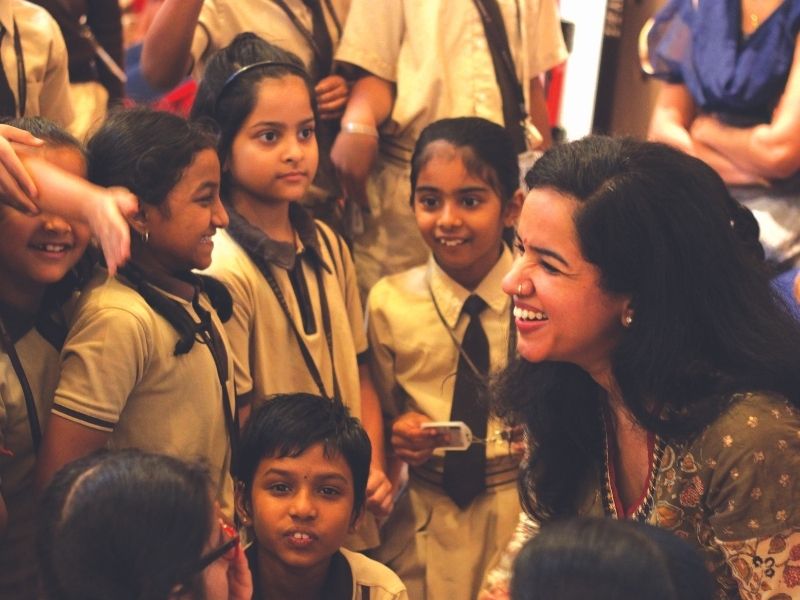
Bindu Subramaniam: post-pandemic scaling drive
Music education evangelist Bindu Subramaniam — daughter of globally-renowned violin maestro L. Subramaniam and Indian classical and playback singer Kavita Krishnamurthy — is the Bengaluru-based co-founder and CEO of the Subramaniam Academy of Performing Arts (SaPa, estb.2007). SaPa provides joyful age-appropriate education in Carnatic, Hindustani classical and Western music. Since it began modestly with a first batch of two students and three teachers 15 years ago, SaPa’s 100 music teachers have trained 100,000 students in India and 14 countries around the world.
In 2014, the academy launched its SaPa in Schools programme to equip children with enhanced 21st century skills and transform them into empathetic global citizens. Thus far, 100 schools countrywide have signed up for the programme, providing violin, percussion, piano, keyboard and vocal music education in ten languages to their students. Among its well-known school partners are: the Hyderabad-based Narayana Group of Schools, GEAR International School, the NPS Group and Innisfree House School — all in Bengaluru.
Newspeg. To mark its 14th anniversary last June, SaPa launched a series of online self-paced courses in music production, song writing, vocal and instrumental music designed by renowned musicians including Dr. L. Subramaniam, Kavita Krishnamurthy, Usha Uthup (stagecraft), Anup Jalota (bhajan), Pankaj Udhas (ghazal), US-based percussionist Russ Miller among others.
History. A polymath law, lyricist and music business alumna of London University awarded her PhD in music education by the top-ranked Berklee College of Music, USA, Bindu is also a Stanford Seed Transformation Program (2020 cohort) fellow.
In 2011 together with brother Ambi, she formally took charge of SaPa — promoted by their parents in 2007 — to make quality music education accessible to learners and aficionados worldwide. The siblings have since developed a research-based curriculum with formally designed syllabuses, pedagogies and assessments. Moreover, SaPa’s teacher training model has been developed in collaboration with the Norwegian Academy of Music, one of Europe’s largest conservatories.
Direct talk. “As much as we are deeply rooted in and respectful of Indian culture, we love and respect the music of other cultures and societies as well. SaPa students are exposed to global music through workshops conducted by international artistes, collaborators, and day-to-day lessons. Even the SaPa in Schools programme has a specially designed ‘music and the world around’ component which includes a social, emotional learning module. Through storytelling pedagogies, children learn about global cultures and traditions to help them explore the correlation between music and subjects like maths and physics. After the outbreak of the global Covid-19 pandemic, we quickly took all our programmes online and are now working on a hybrid learning model. I believe the will to keep learning and evolving will ensure our continuous growth,” says Bindu, also the co-author of 15 SaPa textbooks.
Tuition fees: Rs.1,800-2,400 per month.
Future plans. With the education disruption and loss of lives and livelihoods caused by the Coronavirus pandemic slowly drawing to an end, the SaPa management is planning to gradually scale up its initiatives. “We are looking to partner with many more institutions for our SaPa in Schools programme, and invite several world-class musicians for our online and pre-recorded self-paced courses. Also in the pipeline is a new music curriculum being designed for expecting mothers and three-month-old toddlers,” enthuses Bindu, for whom music is evidently the food of love.
Paromita Sengupta (Bengaluru)
Also read: SaPa in Schools draws parallels between music and math


























